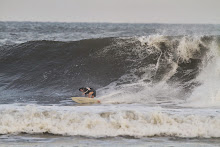Adrenalin
Just got back from presenting the lobster attack-in-reserve story to a bunch of evolutionary biologists at UC Santa Cruz.
I was an undergraduate there a million years ago and did a (for me) seminal piece of research under an amazing Marine Biologist, John Pearse, who, in spite of all evidence to the contrary, encouraged me to keep on being a marine biologist. Instead, I sailed with my first wife and big brother and his first wife on their little boat for more than a year.
Anyway, back to my visit to UCSC on Tuesday. Giving a talk is really nerve racking, especially if your data are new, as yet unpublished. Not sure if your story will survive the scrutiny of peer review. Plus, my night work taking care of Mom had depleted most of my concentration stores. But I managed to get it together, in the San Jose Airport actually, where the quiet and high-speed internet are awesome.
I was hosted by one of the coolest scientists on the planet, Jim Estes. This guy studies the ecological effects of cute little furry sea otters. They, like lobsters and sheephead inside the reserve, are what we call keystone predators. They eat urchins, which if unchecked, will eat a kelp forest right down to the bed rock. Add a population of sea otters to an urchin barren, and within a couple of years, viola, a beautiful kelp bed full of big fish and lots of new invertebrates.
The chair of the department at UCSC, Pete Raimondi, and another faculty, Mark Carr have pretty much written the book on marine reserves, so my coming in and telling all these guys that “it’s the behavior, stupid”, was a little unnerving.
Very unnerving actually. Giving a talk is a little like what I imagine rock musicians go through. Lots of adrenaline pumping through your veins. Your are up there naked, vulnerable. The scene in “Blues Brothers” comes to mind; when the band is pelted by beer bottles and anything else the angry mob can get their hands on.
Back to the sail-boat ride with my brother. When it was all over (January, 1975), my first wife and I were kind of shell-shocked. Months on end of idyllic sailing and surfing were over.
“So,” I said, “What do you want to do with the rest of our life?”
“I dunno,” says she. “What do you want to do?”
“Well,” says I, “I think I want to be either a rock musician or a marine biologist.”
To which she answers, “Well your voice isn’t very good.”
That is how I came to be a marine biologist.
But last Wednesday noon I felt the adrenalin surge of a rock musician going to the cyclone-fence bar for a gig.
But the mobs liked it! They asked great questions. Made me think. Made me wish I could be at a graduate University where lots of good scientists are talking about their work all the time. Saw some pretty stressed-out graduate students, though, which reminds me why I like Chapman so much. Everything is a trade-off
Saturday, May 8, 2010
Subscribe to:
Post Comments (Atom)

No comments:
Post a Comment